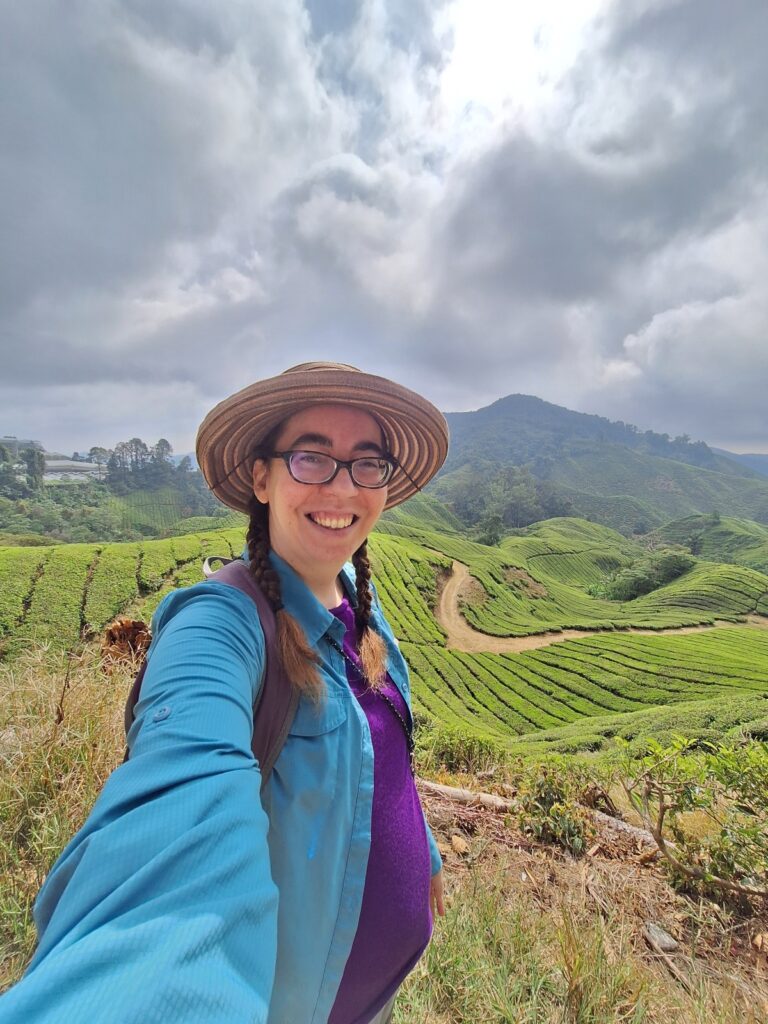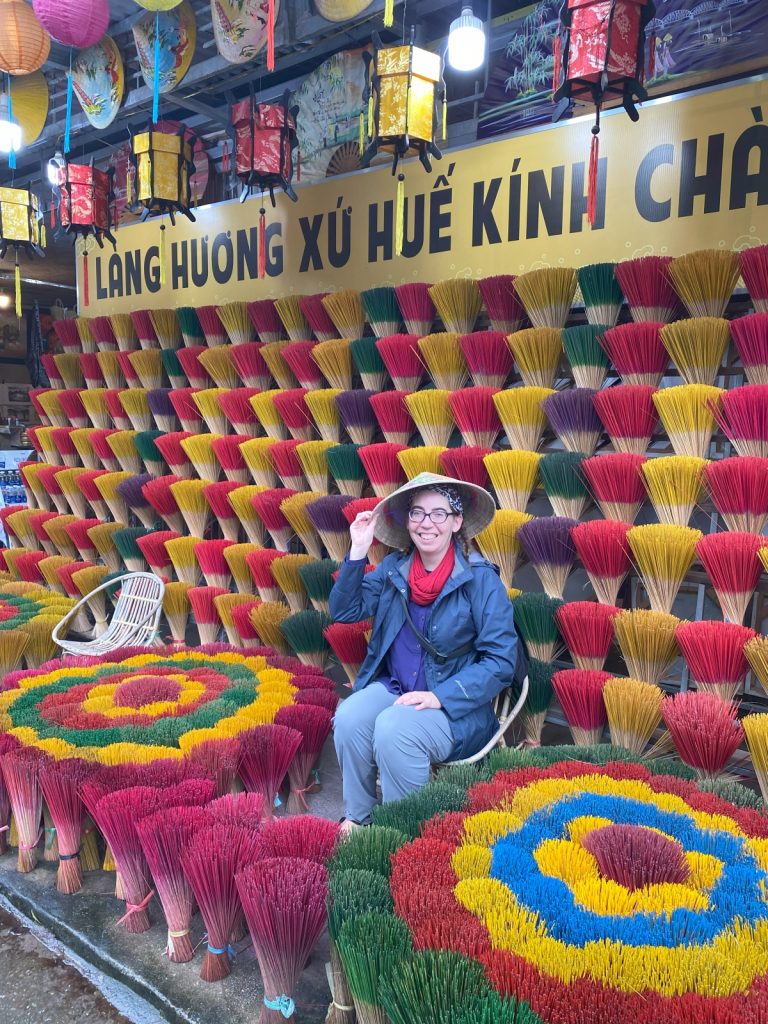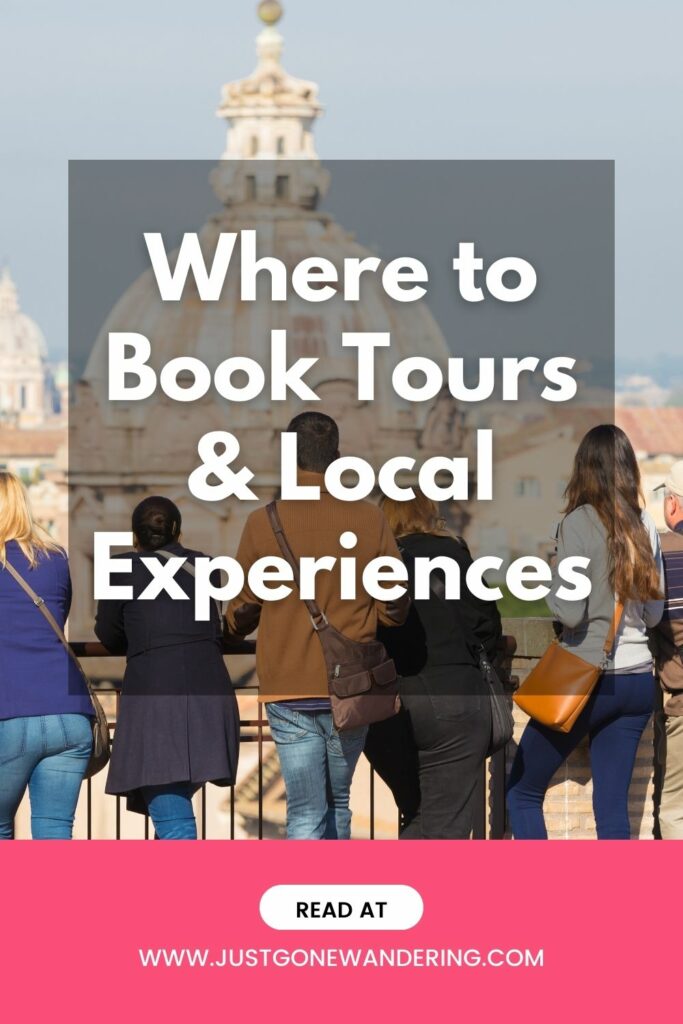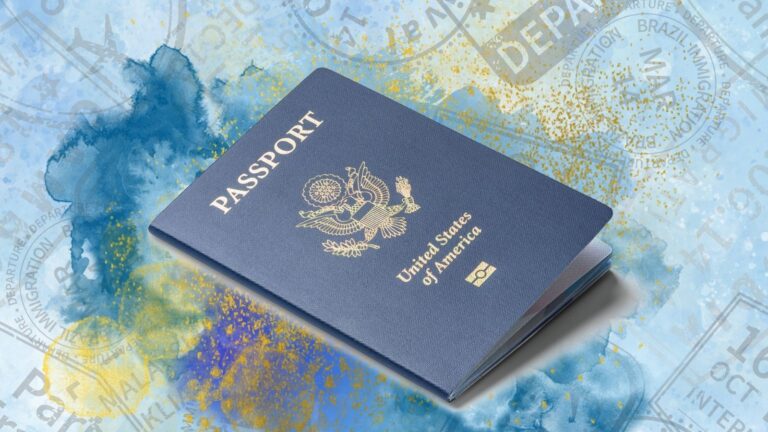Where and How to Book Tours Online
After a few years of full-time travel, I’ve come to appreciate the value of a good tour. Whether it’s navigating the vibrant markets of Jakarta with a local guide or taking a cooking class in George Town, these experiences have added depth and color to my journeys.
Traveling solo has its perks—freedom, spontaneity, and the ability to tailor each day to my own interests are just a few! But there’s also something special about joining a group for a guided tour or booking a local experience. Not only does it give me a chance to meet like-minded travelers, but it also opens doors to hidden gems that I might have missed on my own.
Related: How to Book a Group Day Tour as a Solo Traveler
But knowing where and how to book can be a bit overwhelming, especially with so many options out there. From my own experience, I’ve picked up a few tips and tricks that can help make the process smoother and more enjoyable.
In this post, I’ll share tips on how to book tours and activities—both online and in person—along with some of my favorite platforms to use. Whether you’re a seasoned traveler or planning your first solo adventure, I hope this guide helps you find the best experiences to enrich your journey.
Just Gone Wandering is supported by readers! This post contains affiliate links. If you click on a link and buy something, I get a small percentage at no extra cost to you. Your support helps keep this blog running— thank you! Read full disclosure here.
Booking Tours Online vs. In-Person
There are two ways to book tours: booking online before you go or waiting to book in person once you’ve arrived. Both methods have their own advantages and challenges, and from my experience I’ve found that the better choice often depends on the destination, the type of experience you’re after, and your personal travel style.

Booking Tours Online
Booking tours online has become incredibly popular, and for good reason. It’s all about convenience and peace of mind, especially for those of us who like to have a plan in place before we step off the plane.
Super Convenience
One of the biggest advantages of booking online is how EASY it is. You can plan your entire trip from the comfort of your own home, browsing through tour options, reading reviews, and making bookings at any time of the day or night
For me, this is a huge benefit, particularly when I’m traveling solo. I like knowing that I have a few key experiences lined up before I arrive at a new destination. It helps me structure my time and ensures that I don’t miss out on something just because I didn’t book early enough.
Lots of Variety
Because the online tour companies are looking for as many tourists to book with them as possible, they make sure to have a WIDE variety of tour options for any budget and type of travele
Whether you’re looking for a sunrise trek up Mount Batur in Bali, a wine-tasting tour in the South of France, or a street food tour in Tokyo, you’ll find something. Websites like Viator, Get Your Guide, and Klook offer everything from well-known tourist activities to off-the-beaten-path adventures, so you’re sure to find something that gets your interest.
Reviews and Ratings
Another advantage of booking online is the ability to read reviews and ratings from other travelers.
This is something I always do before booking, as it helps me figure out what to expect and avoid any potential disappointments. There’s nothing worse than signing up for a tour that sounds amazing, only to find out that it’s poorly organized or only goes to tourist traps. Reading through reviews provide invaluable insights and tips from people who have already experienced that tour.
Secure Booking
For popular tours and experiences, especially those with limited availability, booking online in advance can be essential. I’ve had a few close calls where I almost missed out on a must-do activity because I waited too long to book. (Mostly I run into that problem in Europe and the US.)
By securing your spot online, you can avoid the stress of trying to find an available tour at the last minute, particularly during peak travel seasons. It’s also worth noting that many online platforms offer flexible cancellation policies, which is great if you need to change something last-minute.

Price Comparisons
Lastly, booking online allows you to easily compare prices across different platforms and providers. This is a great way to make sure you’re getting the best deal without having to spend hours visiting multiple travel agencies or haggling in person. Some websites even offer price guarantees, which means you can book knowing that you’re getting the best possible rate.
However, booking online has some downsides. For one, you might miss out on some of the spontaneity that makes travel so exciting. When every day is planned out in advance, there’s less room for those unexpected moments that can sometimes lead to the most memorable experiences.
Additionally, while online reviews are helpful, they’re not always foolproof. What one traveler loves, another might find underwhelming, so it’s important to take reviews and recommendations with a grain of salt.
Booking Tours In-Person
On the other hand, there’s something to be said for booking tours and experiences in person once you’ve arrived at your destination. If you’re very spontaneous, or prefer to go with the flow and don’t mind potentially missing out on a specific tour or experience, then booking in person is the way to go. You can also save significant amounts of money by booking in-person!
Embrace Spontaneity
One of the main advantages of booking in person is the flexibility it offers. When you’re on the ground, you can adjust your plans based on how you feel, the weather, or recommendations from locals or fellow travelers.

Maybe you join in on a group tour with some new friends you made at the hostel. Or you find a sudden free spot in a national park and now you get to spend the night there! (Happened to a friend of mine in Borneo!) By booking in person, you’re able to take advantage of opportunities that you might not have considered when planning your trip from home.
Local Deals and Hidden Gems
Booking in person can also lead to discovering local deals or unique experiences that aren’t widely advertised online. If you want to get the absolutely lowest price, then you have to book tours in person, directly with the tour company. Local tour operators often offer discounts for last-minute bookings or group deals that you might not find on major booking platforms.
In some cases, you might stumble upon a tour or experience that’s not listed online at all. For instance, while traveling through Vietnam, I’ve found that many local guides prefer to advertise their services through word of mouth or small posters rather than online platforms. This can lead to some truly authentic and off-the-beaten-path experiences that are a bit more intimate and less commercialized.
Related: Day Tour in Hue (booked with a private tour guide when I arrived)
Personal Interaction with Tour Operators
Another benefit of booking in person is the chance to interact directly with the tour operators before committing. This gives you an opportunity to ask questions and get a feel for the tour’s vibe. If you’re someone who prefers a personal connection or who likes to get a sense of who will be leading the tour, this can be a huge advantage. It also gives you the chance to negotiate prices or customize the experience to better suit your needs.
However, booking in person does come with some risks. Availability can be a major issue, especially during peak travel times or in popular destinations.

For instance, Borneo gets super busy in August and it can be a struggle to find a free spot on a Kinabatangan River cruise, online OR in person. If you’re set on doing a specific activity, there’s always the chance that it could be fully booked by the time you arrive in-person. If you only have a few days in a specific area, you might miss out if you don’t book it ahead of time.
Also, language barriers can sometimes make it challenging to communicate your preferences or understand the details of what you’re signing up for. Some local tour operators are only used to dealing with local tourists, and they aren’t equipped to handle foreign tourists.
Lastly, prices can sometimes be higher when booking last-minute or in person, especially if the tour operators know you don’t have many other options.
Booking Online vs. Offline Comparison Table
To help you decide which approach might be best for your travels, here’s a quick comparison of the pros and cons of booking tours online versus in-person:
| Booking Method | Pros | Cons |
|---|---|---|
| Online | – Convenience: Book anytime, anywhere. – Variety: Wide range of options. – Reviews: Access to other travelers’ experiences. – Secure booking: Ensure your spot, especially for popular tours. – Price comparisons: Easily find the best deals. | – Less spontaneity. – Can miss out on local deals. – Reviews may not always align with personal preferences. |
| In-Person | – Flexibility: Adjust plans based on mood or recommendations. – Local deals: Discover hidden gems and local offers. – Personal interaction: Get a feel for the tour before booking. | – Limited availability for popular tours. – Potential language barriers. – Higher prices for last-minute bookings. |
Both methods of booking have their positives, and the choice really comes down to your personal travel style and what you value most in your travel experiences.
If you prefer to have everything planned out before you even arrive, online platforms are likely your best bet. On the other hand, if you’re more of a spontaneous traveler who likes to see how you feel in the moment, booking in person might be more your speed.
In my own travels, I’ve found a combination of both works best for me. I’ll typically book a few key experiences online, especially for places where I know availability might be limited, and then leave some days open to explore whatever catches my eye once I’m there. This way, I get the best of both worlds—a well-structured trip with plenty of room for spontaneous adventures.
Related: How to Plan a Year of Full-time Travel
Where to Book Tours Online
Over the years, I’ve tried several booking platforms and found a few that consistently stand out for their reliability, tour options, and ease of use. Here’s a quick guide to some of the most popular websites where you can book your next adventure.
Keep in mind these websites are online travel agencies, so they’re only the place where tour operators post their offerings. They don’t run any tours or experiences themselves. They’re only where the listings are kept. Sometimes people get confused about that, so just keep it in mind when you’re looking for a tour.
Viator
Viator is one of the most established names in the online tour booking space, with a vast selection of tours and activities available worldwide. Whether you’re looking for a guided walking tour in paris, a snorkeling trip in the Maldives, or a skip-the-line ticket for the Colosseum, Viator has you covered.
What I appreciate most about Viator is its user-friendly interface. The website is easy to navigate, and each tour listing includes detailed descriptions, photos, and customer reviews. I’ve used Viator for tours in Western Europe and the Americas, and the prices always matched the ones I saw in-person.
Best For: Viator is ideal for travelers who want the security of booking through a well-known, reliable platform. It’s especially useful for finding tours in popular tourist destinations where availability can be limited.
Get Your Guide
Get Your Guide is another top contender, particularly popular in Europe but with a growing audience around the world. They focus on curated experiences that often include skip-the-line access, exclusive tours, and cultural experiences.
One of Get Your Guide’s strengths is the quality of its content. The site features comprehensive itineraries, detailed explanations of what’s included, and beautiful images that give you a real sense of what to expect. I also like that Get Your Guide often partners directly with local providers, offering unique experiences that might be harder to find elsewhere.
Best For: If you’re traveling through Europe or interested in cultural and historical tours, Get Your Guide is a fantastic resource. It’s perfect for travelers who want to make the most of their time by booking high-quality, vetted experiences.
Klook
Originally focused on Asia, Klook has rapidly expanded its offerings to include destinations around the world. You can now find listings for Europe, the Americas, and even Africa! Klook is also great for finding SIM cards and other travel-related things you may need.
Klook stands out for its competitive pricing and mobile-first approach. They often offers exclusive deals and discounts, particularly for Asian destinations, making it a great choice for budget-conscious travelers. Klook’s app is also incredibly user-friendly, allowing you to book and manage your tours on the go.
Best For: Klook is ideal for those traveling in Asia or looking for a platform that integrates smoothly with their mobile devices. The Klook app is the easiest to use and the nicest-looking of those on this list.
Other Sites
While Viator, Get Your Guide, and Klook are my go-to platforms, there are a few others worth mentioning:
- Airbnb Experiences: Great for finding unique, locally-led activities that you won’t find on more traditional platforms. Especially good for Instagram photo experiences and cooking classes.
- GuruWalk: Find walking tours with local guides, most at a pay-what-you-want scale.
- TripAdvisor: A good choice if you want to see user-generated content and reviews, with the added benefit of easy booking integration. They’re the same company as Viator, but a slightly different layout.
How to Save Money on Booking Experiences
Traveling can be expensive, but booking tours and experiences doesn’t have to break the bank. With a little planning and some savvy strategies, you can go on incredible adventures while keeping your budget in check. Here are some of the best tips I’ve picked up over the years for saving money on booking tours and experiences.
Book in Advance
One of the easiest ways to save money on tours is by booking in advance. Many platforms (see above) offer early bird discounts if you book a month or more ahead of time. In particular, if you want to go on a multi-day tour, booking in advance is a good way to snag discounted rates.
Tip: As soon as you know your travel dates and have an idea of what experiences you want to include, start looking for deals. Booking a few months in advance often means lower prices and better availability.
Use Promo Codes and Discounts
Promo codes and seasonal discounts can add up to significant savings. Most booking platforms run promotions throughout the year, so it pays to keep an eye out.
Where to Find Discounts
- Sign up for newsletters from Viator, Get Your Guide, and Klook. They often send out exclusive discounts to subscribers. Klook in particular is great about sending out discount emails.
- Follow tour providers on social media. They frequently post promo codes or special deals.
- Use browser extensions like Honey or Rakuten, which automatically apply coupon codes at checkout.
- SUPER TIP: Rakuten frequently has extra savings on websites, like right now they’re doing 10% cashback on Viator instead of the usual 2%.
- Never used Rakuten before? Sign up using my link and get an extra 10% cashback on top of current rates. Score!
- Check hostels and local hotels (in person). They’ll often have deals with local providers to give guests a discounted rate, or bundle it in with a freebie. On my day tour in Dalat, for instance, I got free breakfast because I booked through my hostel.

Look for Package Deals
Many platforms offer package deals where you can book multiple tours or activities at a discounted rate. These are especially useful if you plan to do several things in the same area.
Types of Packages:
City Passes: Some cities offer tourist passes that include entry to multiple attractions at a discounted price. You can find them online or at tourist info centers. Singapore has a great city pass, for instance.
Multi-Day Tours: Instead of booking individual day trips, consider a multi-day tour that bundles experiences together, often at a lower overall cost. You can even get tours that include accommodation, food, and transit to/from the tour location.
Combined Activities: Some platforms offer discounts if you book a combination of activities, such as a tour plus airport transfers or accommodation. If you’re booking a hotel on Booking.com, for instance, you can often get discounts on tours for that destination as well.
Travel Off-Peak
Timing your travels during the off-season can lead to significant savings on both accommodation and tours. During these low-tourist periods, tour operators are more likely to offer discounts to attract customers.
Off-Peak Advantages:
- Lower Prices: Tours and activities are often cheaper when demand is lower.
- Less Crowded: You’ll get a more relaxed experience without the high-season crowds.
- Better Deals: Off-peak travelers might find last-minute deals more frequently as operators try to fill spots.
But beware! Sometimes going during the off-season means there’s NO tours or experiences, because the tour operators left to go work where there’s actually people. Double-check before booking a flight or hotel that you’ll still be able to do the tours you want to do in that destination.
Check Local Options Upon Arrival

While booking online has many advantages, sometimes the best deals can be found locally once you’ve arrived at your destination. Local operators may offer discounts that aren’t advertised online, and there’s always the potential to negotiate prices. This is especially true in Southeast Asia, where MOST of the tours aren’t listed online.
Where to Look:
Tourist Information Centers: These often have brochures, maps and flyers for local tours, sometimes with exclusive discounts. I always make it a point to stop at a tourist info booth whenever I arrive in a new city.
Hotels and Hostels: Many accommodations partner with local tour operators and can offer discounts or special rates for guests. I went on an amazing food tour in Singapore for less than half the original price because I was staying at the hostel!
Local Tour Agencies: Walking around and visiting local agencies can lead to discovering tours that might not be listed online. Plus, you can often negotiate directly. This works especially well in high-tourist areas where there’s lots of competition, like Bali and most places in Vietnam.
Consider Free or Low-Cost Alternatives
Sometimes, you don’t need to spend a lot to have a great experience. Many destinations offer free or low-cost tours and activities that are just as fun as their pricier counterparts.
For instance:
Free Walking Tours: Available in most major cities, these tours are typically run by local guides who work for tips. They’re a fantastic way to learn about a place without spending a lot. I like using GuruWalk and Free Tours By Foot to find them.
Self-Guided Tours: With a bit of research, you can create your own walking tour or itinerary, especially in cities rich with history or cultural landmarks. Or you can find free ones already made by other travelers! These can be either audio or text-based, and most are free or very cheap. I especially liked using Rick Steves’ audio tours in Western Europe, for example.
Public Events: Check local event listings for free festivals, markets, or performances happening during your visit. If there’s a large English-speaking expat community in the destination you’re going to, there’s most likely an English-language guide available somewhere.
In Japan, for instance, Tokyo Cheapo is a good resource for finding local events. You can also check Facebook Events, Meetup, and the local tourism board’s website.

Final Thoughts
Going on tours and local experiences can be one of the most rewarding aspects of travel, allowing you to dive deeper into the culture, history, and beauty of each destination. Whether you prefer the convenience of booking online or the flexibility and local deals found when booking in person, there’s no shortage of ways to find an amazing tour to join in on.
By using the strategies discussed here—like booking in advance, using promo codes, exploring package deals, and staying open to local opportunities—you can enjoy incredible experiences without straining your budget. Remember, the key is to strike a balance between planning and spontaneity, ensuring you have both structured activities and the freedom to explore on your own terms.
Traveling doesn’t have to be expensive to be enriching. With a little research and these practical tips, you’ll be well-prepared to find the best tours and experiences that align with your interests, timeline, and budget. So get booking! 😉
Save to Pinterest


Explore More
Tour Reviews & Experiences
- Three days at the Elephant Conservation Center in Sayaboury, Laos
- Visiting the Plain of Jars, Phonsavan, Laos
- Half-Day Tour of Cameron Highlands (Review)
- Mt. Bromo, Indonesia Sunrise Tour Review
- Ninh Binh day tour: what to expect & where to book
- Hanoi’s French Quarter Walking Tour Review
- Walking Around Montmartre, a Bohemian Neighborhood | Tour Review
Southeast Asia Travel Tips
- What’s the Banana Pancake Trail, Anyway?
- Where to Go in Southeast Asia When You’re Too Hot
- How to Book Bus Tickets in Southeast Asia
- What to pack for Southeast Asia | Unpack with me
- 10 months in Asia: Solo female backpacker’s travel budget
Best Travel Resources
- 👩💻Stay organized with the Deluxe Travel Planner Spreadsheet
- 🛌Search Hostelworld for budget stays
- ✈️Search SkyScanner for discounted flights around the world
- 😺Join TrustedHousesitters and do petsitting in exchange for accommodation
- 💳Carry Chase Sapphire Preferred for a travel-friendly credit card
- 📱Use Airalo for eSIMs around the world
- 🚙Check DiscoverCars for international car rentals
- 👩💻Snag ExpressVPN to stay safe while browsing the web
- 🧑⚕️Sign up with VisitorsCoverage for trip insurance







